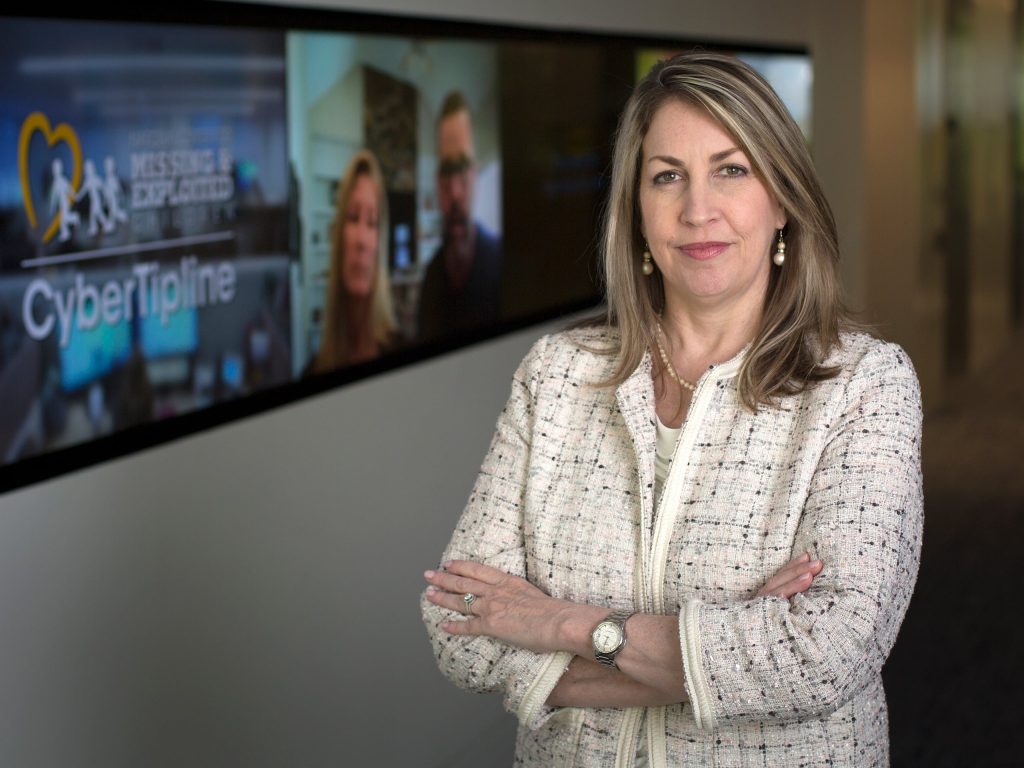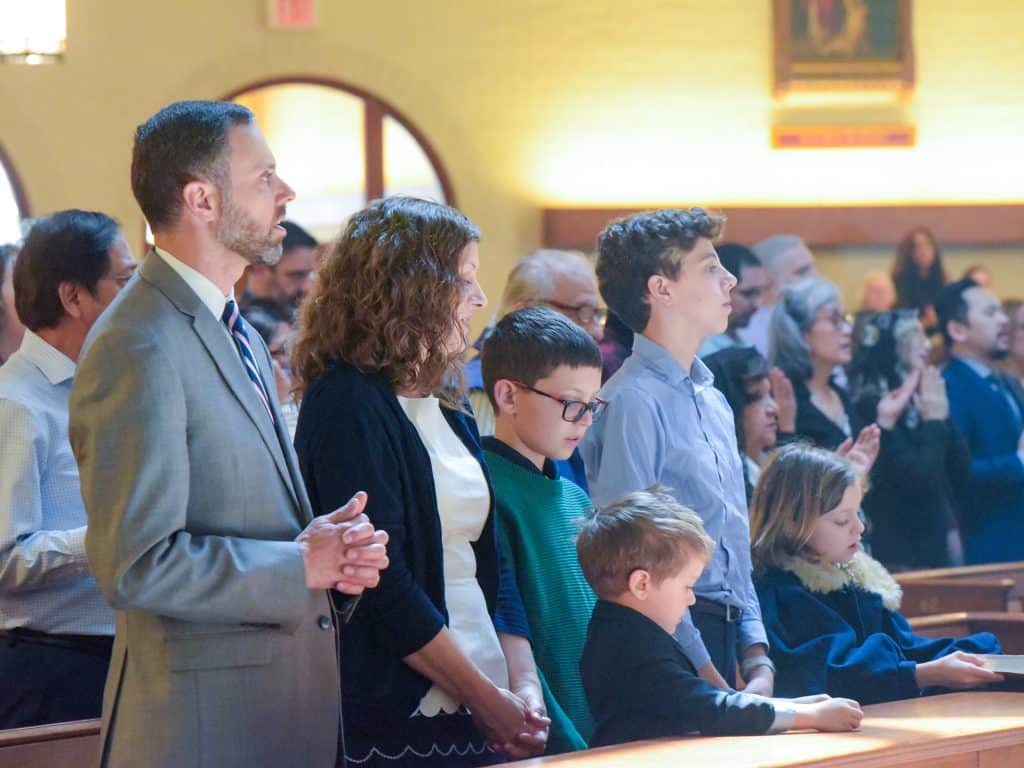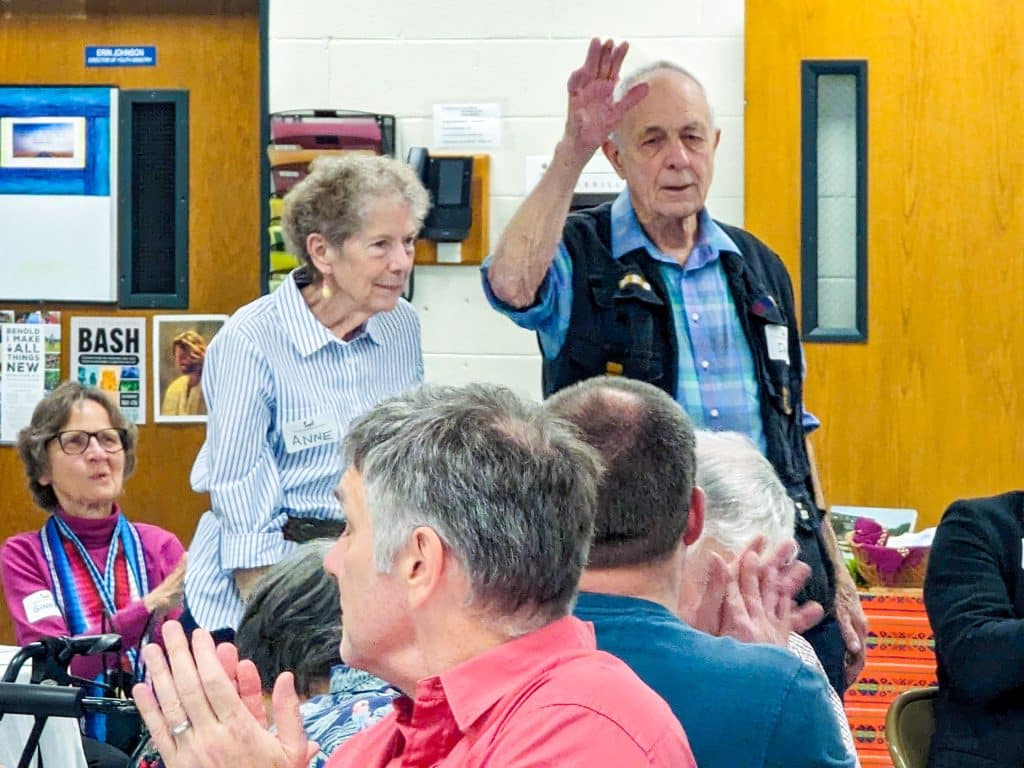There’s not a hint of gray in Adorer of the Holy Cross Sister Theresa Lan Tran’s jet black hair. The 69-year-old’s age is even less evident when she’s racing across a field with 4- and 5-year-old boys. Good health and her own willingness keep her at the sisters’ BusyBee Child Care Center in Fairfax. She especially loves teaching the children songs and dances.
“We’re working until we can’t work,” said Sister Mary Trihn Nguyen, the convent’s 66-year-old superior and daycare director. Though of an age when many consider retiring, the thought doesn’t seem to cross Sister Theresa’s or Sister Mary’s mind. In addition to her work at BusyBee, Sister Theresa teaches religious education to children in the local Vietnamese Catholic community.
When they’re ready, they’ll retire to the order’s motherhouse in Portland, Ore., said Sister Mary. But for now, they’re content. “We have fun,” said Sister Mary. “We’re happy with the children.”
Retirement for men and women religious may come a little later and look a little different than it does for the average American layperson. Among religious orders, policies for retirement and the challenges they face in caring for retirees vary. According to the U.S. Conference of Catholic Bishops, of 547 communities that provided data to the National Religious Retirement Office, only 23 are adequately funded for retirement.
Demographics are, in part, to blame. Vocations to the religious life surged in the mid-20th century and since have begun to fall off, leaving many religious approaching their retirement years with fewer younger members to care for them. According to the National Religious Retirement Office, in 2018, 68 percent of the religious communities providing data had a median age of 70 or older. Healthcare costs and lifespans also have increased.
“Currently, the average annual cost of care for women and men religious past age 70 is $43,913 per person,” said the organization.
Lay men and women are pitching in to help. Last year, the Diocese of Arlington contributed more than $466,000 to a nationwide second collection for retired religious. Some of that money has come back to communities in the diocese, including thousands for the Trappist priests and brothers of the Abbey of Our Lady of the Holy Cross in Berryville, Dominican contemplative sisters at St. Dominic’s Monastery in Linden, and the Congregation of the Immaculate Heart of Mary or Missionhurst priests in Arlington.
Missionhurst Father Bill Wyndaele, 83, is one of the six men who live at the community’s retirement home in Arlington. He likes to read, pray, ride on his stationary bike and counsel people in spiritual direction. He’s doing pretty well, he said, though back problems make it difficult for him to stand during Mass. The missionary was born in Belgium, but spent most of his life in the U.S., and chose to retire here.
The home where he and the other men live, which opened in 2000, was specially designed to accommodate elderly residents with features such as spacious rooms and an elevator. Two of the priests require around-the-clock care from a caretaker, he said. Though the community doesn’t have a set retirement age, starting at 70, priests receive assignments which last one year, rather than the normal three or four.
Missionhurst Father Tim Atkin, 70, grew up in Michigan, ministered for 26 years in Haiti and then served as the congregation’s superior general in Rome. When his term was up, he decided to retire to his home country. Not every place the men serve has a retirement house, said Atkin, and he knew that Haiti wouldn’t have the medical infrastructure he might need as he aged. The retirement home in Arlington was full, so Father Atkin lives with active members of the community in another residence on the property.
In his free time, Father Atkin likes to attend exercise classes and translate from French to English. He’s often asked to help out at Missionhurst parishes such as St. Ann Church in Arlington and others much farther from home. “We had a man from Indonesia who went home on vacation, so I went for six weeks to fill in for him in Texas. And another man in North Carolina went to the Philippines for four weeks,” he said.
Though he still has things to do, he appreciates the change of pace. When asked about retired life, Father Atkin’s face lit up. “Oh, I love it,” he said. “I do what I want to do, to a certain extent. You don’t feel pressures of having to be at a certain place at a certain time.”
Father Wyndaele chimed in, “No more meetings.”


